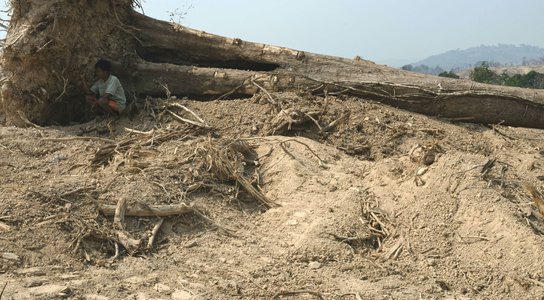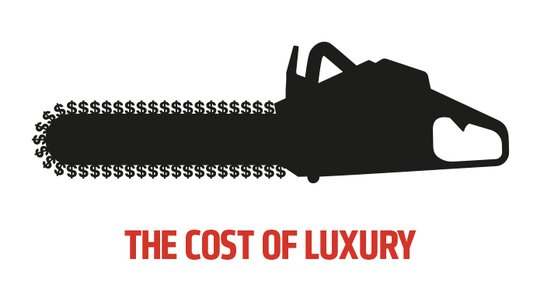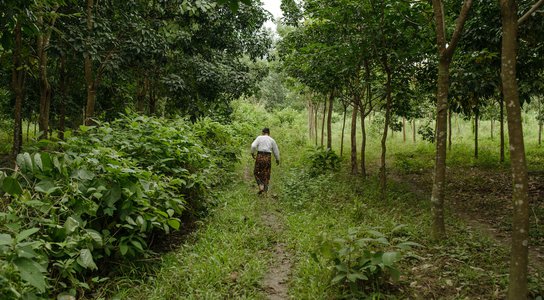As Vietnam's rubber giant Vietnam Rubber Group (VRG) prepares to launch an initial public offering, Global Witness is calling on investors to boycott the company due to its implication in vast land seizures, the violent eviction of communities across Cambodia and Laos, and illegal logging says Global Witness.
“VRG, one of Vietnam’s biggest companies, is wooing investors as it prepares to float shares on the Ho Chi Minh stock exchange,” said Global Witness campaigner Emma Burnett. “They should avoid buying a stake in VRG due to its connections to a spate of violent land grabs that have caused mass suffering in neighbouring countries, the impacts of which are still being felt today.”
“Land grabbing is not only immoral, it’s also bad for business,” said Burnett. “The Vietnam Rubber Group has been caught up in lengthy land disputes and illegal deforestation that carries a significant financial, legal and reputational risk.”
In 2013 Global Witness investigations revealed how the company had been leased vast tracts of land by the Cambodian government far above legal limits and without the permission of those who lived on it. Communities who resisted faced violence, arrest and detention by security forces. In Kampong Thom province, villagers, including young girls, were reportedly threatened, beaten-up and arrested by state security forces. Those who refused to leave were ultimately evicted at gun-point. [i]
What followed was akin to a military occupation. Five of the six VRG concessions Global Witness visited in Cambodia were guarded by soldiers or military police, who conducted regular patrols and manned check-points.
This wasn’t lost on one of VRG’s investors. Following the launch of Global Witness’ report Rubber Barons, Vietnam Holding (VH), a fund which invests in “Vietnamese companies that demonstrate strong long-term investment potential” divested from two VRG subsidiaries, one of which had made up 4.7% of the fund’s net asset value.[ii]
At the time of the investigation, VRG presided over more than 130,000 hectares of land in Cambodia [iii] – an area roughly the size of Delhi or San Francisco, and over thirteen times the limit officially allowed by Cambodian law.[iv] Without land to farm, many families were left impoverished. In Ratanakiri province, villagers told Global Witness that food was so scarce that they had no choice but to send their children to work on VRG’s plantation.[v]
Satellite imagery analysed by Global Witness in 2013 revealed that large swathes of forests had been cleared within VRG’s concessions. Five years later, land disputes with local communities are still ongoing.
VRG’s initial public offering is set to launch on 2nd February 2018. The company will be offering 475 million shares for public auction, around 12% of its charter capital. Another 475 million shares will be sold to domestic strategic partners, according to Reuters.[vi]
In a letter dated January 2018, VRG told Global Witness that it had abided by all relevant laws, regulations and processes in Cambodia, and had made significant investments in infrastructure and social projects for local communities, leading to improvements in their lives. The company also mentioned the positive impact of job creation, as well as its collaboration with local NGOs to address any negative environmental consequences.
In response to allegations of forced evictions in Kampong Thom province VRG told Global Witness that it had compensated affected communities in the area who were satisfied with the compensation.
In response to allegations of impacts on communities in Ratanakiri province VRG told Global Witness that it had consulted local communities who supported the project.
/ ENDS
Contacts
Notes to editor:
[i] Global Witness, Rubber Barons, (May 2013), p.26
[ii] VietNam Holding, ‘Engagements affecting portfolio construction’, 2016. Available at: http://www.vietnamholding.com/sites/default/files/ENGAGEMENTS%20AFFECTING%20PORTFOLIO%20CONSTRUCTION.pdf
[iii] Ibid, p.25
[iv] 130,000 hectares equates to 1,300 km2. For the size of Delhi or San Francisco see: http://www.citymayors.com/statistics/largest-cities-area-125.html
For legal limit of land concessions see Rubber Barons, p.3
[vi] Reuters, ‘Vietnam Rubber Group to raise US$273 million in February IPO’, January 2018. Available at: https://www.reuters.com/brandfeatures/venture-capital/article?id=24342
Deal Street Asia, ‘Vietnam Rubber Group targets raising $273m in Feb IPO’, January 2018. Available at: https://www.dealstreetasia.com/stories/vietnam-rubber-group-targets-raising-273m-in-feb-ipo-89519/
You might also like
-
Report Rubber Barons
Vietnam’s two biggest rubber companies are moving into Cambodia and Laos, seizing farmland, flouting land and forest protection laws and wrecking local livelihoods.
-
Report The Cost of Luxury
The Chinese craze for antique-style furniture has given rise to a multi-million dollar timber smuggling operation in Cambodia, and is driving rare trees to extinction.
-
Campaign Rubber in the Mekong
Following a market boom in the mid-2000s, rubber companies expanded into new land in Cambodia, Laos and Myanmar with disastrous consequences. Global Witness has been working with the rubber industry to raise awareness of the risks and encourage sustainable sourcing